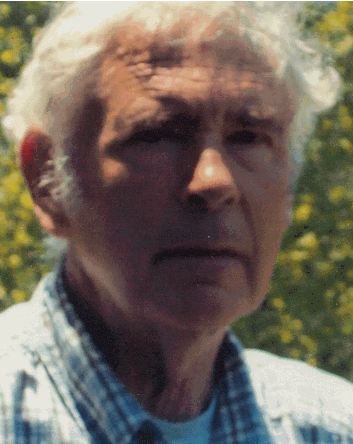
David Griffiths
David Griffiths was born and raised in New Jersey. He received his BA from Swarthmore College, his MA from Columbia University, and his PhD from Cornell University. Except for a one-year stint at Denison University, he was associated with the University of North Carolina at Chapel Hill for his entire career. He retired in 2007 and died on February 17, 2014.
Griffiths was a popular teacher at both the undergraduate and graduate levels. His courses The History of Western Civilization, Russia until the Emancipation of the Serfs, and The History of Socialism invariably filled the assigned classrooms. (The last of these was close to his heart, as by conviction he was a social democrat.) He supervised the doctoral dissertations of seven students—all but one hold academic positions—and nine MA theses. Much beloved by his students, he is remembered as an imaginative, stimulating, and warmhearted instructor. How many could claim to have studied under someone who survived both Legionnaires’ disease and a copperhead snakebite?
Griffiths did archival research in Moscow, Vienna, Munich, Paris, and London. He wrote his MA thesis on Russia and the American Revolution, and his dissertation was entitled “Court Politics and Foreign Policy under Catherine the Great.” With one of his former students, George Munro, he authored and edited a collection of important documents in Catherine II’s Charters of 1785 to the Nobility and the Towns (1991). His lengthy introduction to the volume, “Catherine’s Charters: A Question of Motivation,” is widely cited for its assessment of political “constitutions” in ancient regime Europe. And in 1997 he translated and edited A. B. Kamenskii’s The Russian Empire in the Eighteenth Century: Searching for a Place in the World. Respectable though these publications are, they are dwarfed by 20 articles he published in a variety of scholarly journals or as chapters in books. Notable among them, and indicative of their range, are: “Catherine II: The Republican Empress”; “Eighteenth-Century Perceptions of Backwardness: Projects for the Creation of a Third Estate in Catherinean Russia”; and “In Search of Enlightenment: Recent Soviet Interpretations of Eighteenth-Century Russian Intellectual History.” He was a leader among British, American, and Russian scholars who have successfully shown the significance of Catherine II’s reign.
Griffiths had a busy professional life. In addition to his publications, he edited several volumes of the journal Canadian-American Slavic Studies—two of which were on the Russian Enlightenment. He also participated in dozens of regional, national, and international meetings, as presenter or commentator. He was repeatedly involved in the Study Group on Eighteenth-Century Russia, convened periodically in the United Kingdom and elsewhere in Europe. He was elected president of the Southern Conference on Slavic Studies, which in 2013 presented him an award, created especially for him, honoring his “Outstanding Service to Eighteenth-Century Studies.”
Drafted into the army in 1960, he worked in military intelligence, followed by a term on the staff of Radio Liberty in Munich. It was there that he met and married his engaging wife, Karin, with whom he enjoyed a conspicuously happy life. They presently acquired a second home in the mountains, where they enjoyed hiking, gardening, and bird-watching, and graciously entertained friends who had wonderful times together singing German, Russian, and French tunes, among others.
As a capstone to his career, a collection of 17 of his articles, entitled Catherine the Second and Her World and translated into Russian, was published in a handsome edition in Moscow in 2013.
Griffiths is survived by his wife, two children, and three grandchildren.
Samuel H. Baron
University of North Carolina at Chapel Hill
This work is licensed under a Creative Commons Attribution-NonCommercial-NoDerivatives 4.0 International License. Attribution must provide author name, article title, Perspectives on History, date of publication, and a link to this page. This license applies only to the article, not to text or images used here by permission.